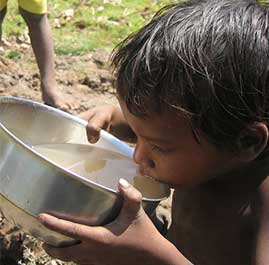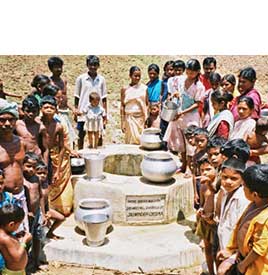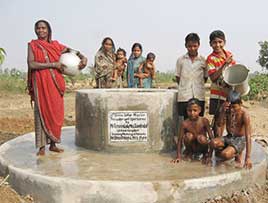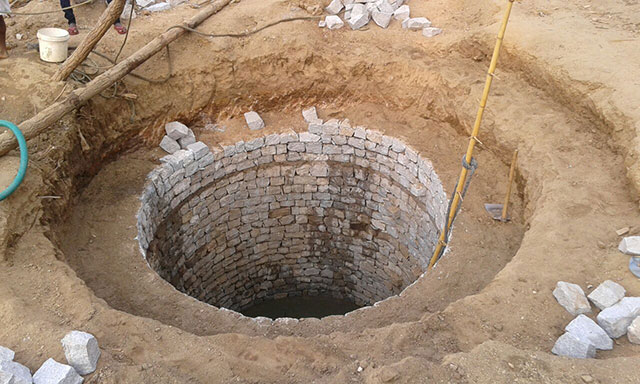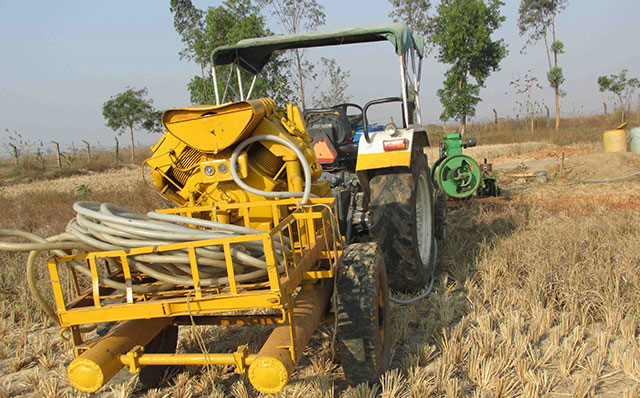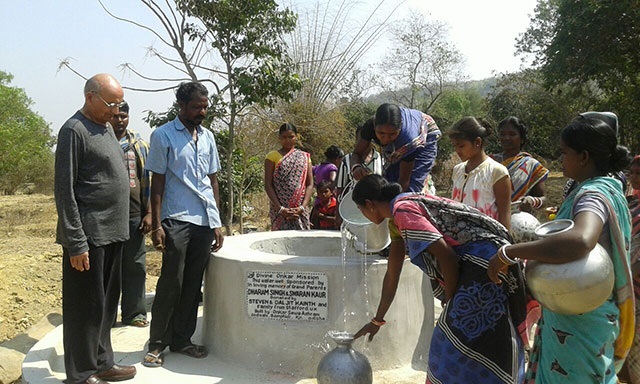Half the world’s population is living in unhealthy conditions without access to clean water, according to a UN-backed report. The report, drawn up by the World Commission on Water for the 21st Century, says three billion of the world’s most deprived people live in squalor and misery without access to proper sanitation. One billion of them have no access to safe water at all. But the report says this does not have to be the case. It says access to water should be seen as a basic human right as well as a key factor in the fight against diseases such as typhoid and cholera.
UN water expert Brian Appleton says 5,000 children die needlessly every day from waterborne illnesses. “That’s equivalent to 12 full jumbo jets crashing every day,” he says. Clean water is essential for life and lack of safe sanitation, results in over two million people dying from water-related diseases every year. The lack of clean water close to people’s homes also affects people’s time, livelihoods and quality of life. The most obvious benefit of access to safe water and sanitation is a reduction in disease. The improvement of the economic position of poor families is often dramatically improved when they gain access to these basic services.
5,000 children die needlessly every day from waterborne illnesses. That’s equivalent to 12 full jumbo jets crashing every day
India is a huge and diverse country with a population of more than one billion people. There are vast divides between rich and poor with nearly 30% of the population living in poverty. For every 1000 children, 87 die before their 5th birthday, mostly from preventable diseases like diarrhea. Just 15% of the rural population has access to a toilet – meaning that some 21 million people need to gain access to basic sanitation every year if the Millennium Development Goal of just halving the proportion of people without sanitation is to be met.
Every day, women and young girls carry several kilos of water from sources over 7km from their homes and villages. This leaves little time for attending school or education, which is critical to changing the long term prospects of a developing nation. Schools cannot run programmes if they cannot provide water to students, staff and their families. Because so many adults are sick from unclean water, children are often left to manage homes, provide food and look after the sick. With the many additional burdens that a lack of clean water brings, education simply becomes less of a priority. This perpetuates an unfortunate cycle of poverty as without a proper education, there is little chance of improving one’s situation later on in life.
Water Wells
Currently we are focused on the State of Jharkhand and Orissa two of the poorest states in India. It’s a known fact that most people living without water live actually live above it!! but have no means to get access to the water.
We have provided these means. Our Water Well project provides remote villages with clean water. The different stages in constructing a water well, promotes community involvement with active participation in the whole process. The village elders are consulted and involved throughout the process, promoting ownership and empowerment. Our consultative and collaborative approach is underpinned by our underpinning value of communities helping themselves and empowerment.

